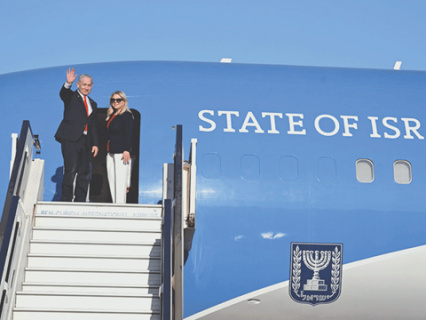
As Israeli Prime Minister Benjamin Netanyahu arrives in the United States for critical talks on regional security with President Donald Trump, the central topic of a post-war Gaza is being reshaped by a dramatic power shift on the ground. According to a senior Hamas official, the militant group has lost 80% of its military and political control over the enclave, creating a vacuum now being filled by armed militias formed by powerful local clans, a force Israel appears to view as a potential new authority.
The high-stakes diplomatic meeting follows a recent escalation in the Red Sea, where the Israel Defense Forces (IDF) resumed strikes against Houthi port infrastructure in Yemen. The IDF stated that the Iran-backed Houthis remain a central proxy force, armed and funded by Tehran, highlighting the broader regional context of the Gaza conflict.
Within Gaza, Hamas is facing an internal collapse. A high-ranking Hamas officer revealed to British media that the group’s security structure is nearly non-existent. “Let’s be realistic: most of the leadership, almost 95%, are now dead… What really prevents Israel from continuing this war?” he stated, adding, “Israel has military superiority, the world is silent, the Arab regimes are silent, criminal gangs are everywhere, society is collapsing.”
He detailed how, following intense Israeli strikes, essential Hamas facilities used to govern the territory were looted by desperate residents. “They looted all the offices… and no one intervened. There is no police, no security,” the official lamented. Attempts by Hamas to regroup during a brief ceasefire earlier this year were thwarted when Israel resumed its offensive, preventing any meaningful recovery.
This grim assessment aligns with reports from sources within Hamas who told Reuters the group is desperate for any pause in fighting to rehabilitate its decimated forces. Having lost its command hierarchy and veteran fighters, Hamas is now attempting to recruit young, inexperienced, and poorly motivated individuals. These sources admit that the rise of local clan militias has become a major challenge, and a ceasefire is needed as much to fend off internal rivals as it is to recover from Israeli attacks.
One of these new clan leaders, commander Yasser Abu Shabab, recently gave a landmark interview to Israeli media, confirming his forces are engaged in limited cooperation with the IDF. “Our goal is support and assistance, and nothing more. When we go on any mission, we inform them—nothing beyond that—and we carry out the military operation,” he explained, noting that local residents support him and have turned over weapons previously hidden for Hamas.
Abu Shabab distanced himself from Hamas’s ideology, condemning the October 7th attack for the catastrophic price it exacted on Gazan civilians. He called for the return of all remaining hostages, stating, “All innocents, from all sides, should be able to return home.” He vowed his forces would continue to fight Hamas, which he described as a “mad terrorist group,” and noted their growing weakness on the ground: “They run like mice when we fight them.”
This emerging strategy of empowering local clans appears to have the backing of Netanyahu’s government, which has previously acknowledged providing support to some militias. However, the approach is fraught with risk. Critics, including former Defense Minister Avigdor Lieberman, warn that many of these supposedly reliable commanders may have ties to global jihad and could eventually turn their weapons against Israel, potentially creating a new and unpredictable threat from the ruins of the old one.
